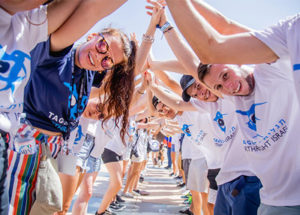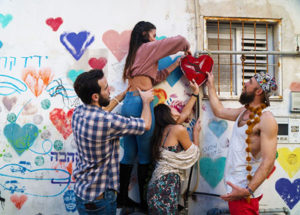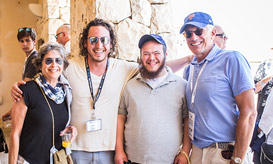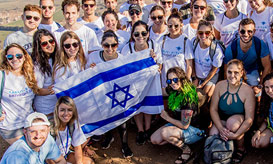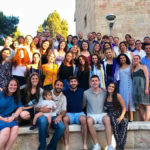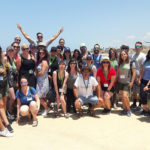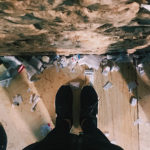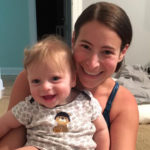In this week’s edition of What Alumni Are Saying we’re hearing from participants from New Jersey.…
Nine years ago, Eren Niederhoffer of Atlanta, GA, met 15 other people who also have Autism as he boarded a 747 to Israel. He had the pleasure to highlight pivotal moments on Birthright Israel in an article in The Jewish Georgian in 2011.
However, most importantly, in the years to come after his Birthright Israel trip, Eren’s experience will never leave him. He will go on to take leadership roles within the Atlanta Jewish community by joining the advisory council of the Jewish Abilities Alliance and become president of a local Autism self-advocacy affiliate group. In the group, Eren seeks to debunk stereotypes about Jews and Israel, by showing others not only the similar struggles that Jews and Autistics go through but how seeing through the eyes of both open the minds of all to a much brighter worldview.
We asked Eren out of everything he learned during his time on Birthright Israel, what is the lesson he appreciated most? He answered, “There will always be controversy, always confusion, always misunderstanding. Before I can make a judgment of the world, I first need to understand as much as I can about myself and the world around me. Before I can make any claim about changing society, I first need to make changes in myself, and none of that is possible unless I am willing to open my mind to new things and be willing to try new things we well, this is what Birthright taught me.”
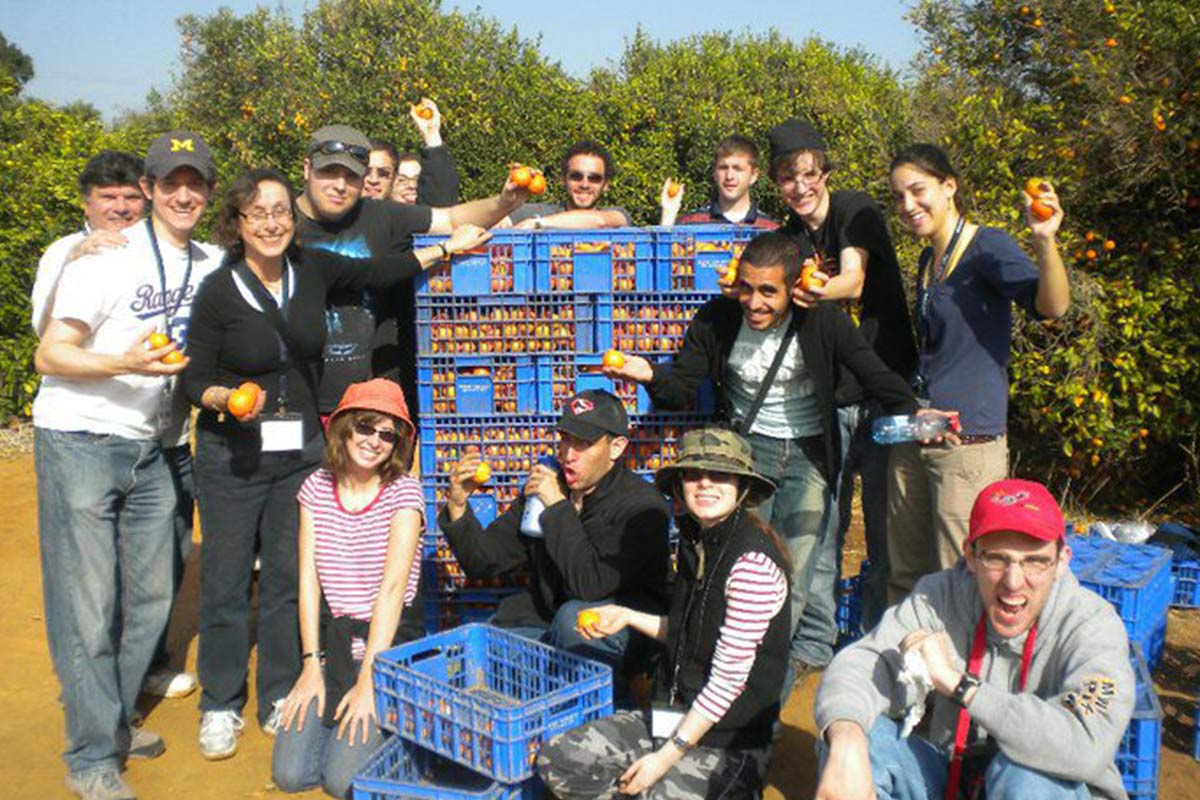
Birthright Israel, day by day as published in The Jewish Georgian, 2011
This is the story of my trip to Israel with Birthright Israel.
When we Autistic people first met before the flight, it had a large impact on me. I met at least 15 other people who had Autism, like me, but they were so different in their own ways. To know that I could find so many people like me, who would do things with me, whom I could stay friends with even after the trip—already, I felt an incredible feeling of hope and delight that I had not felt in a long time.
Exiting the 747 into the airport, we were greeted by our welcoming committee; some of them would be our guides, and we would become friends with them. I felt like they were welcoming each of us personally, like we were considered special to them, a member of their group already, just by arriving. I felt like I had found a sense of ease; my nervousness began lifting from me with the knowledge that the next day, our journey into Israel would begin, and I would not be alone in my travels, but with good companions.
December 17 | The Kotel: Our first day in Israel began with a trip into the Old City of Jerusalem and The Western Wall. Here, we were awestruck with the difference in architecture, an exotic feel that grips you in amazement at how beautiful it is.
The Western Wall is beautiful and yet strange. Animals run through these streets yet were so friendly to us strangers. In there, I saw men and women still divided when they went to mourn, but the emotions that were there, the thousands of paper scraps with names, all presented a feeling of mourning for loved ones, as I mourned for my grandmother there. Walking backwards away from the wall, as per tradition, the first doves I ever saw flying overhead added to the awe of The Old City. More importantly, the diversity of blacks, Asians, and so many other ethnic groups in this place brought me to believe it is possible for all types of people to understand and live with one another.
December 18 | The Old City: It was evening when we started out to the wall of Jaffa Gate, leading to a spectacular sound and light show that tells the story of Jerusalem. As we walked through the walls to where we would watch the main event, smaller displays amazed us with their detail and look into Israel’s culture, yet kept us hungry with excitement for the main event. The show, a detailed depiction of Israel’s history from beginning to today, seemed endless, yet it was only one hour. The story, which was brought across without any words, impacted us so strongly with the special effects.
December 19 | Masada: The Masada Desert. Performing morning services here, where there is nothing but desert-land, blinded me to the beauty of it, but it had me thinking of what others went through to survive in such harsh terrain. The hike up the mountain was beautiful; it was so incredible to think there had been a fortress here. On the synagogue at the top of the mountain, we participated in a ceremony where we could reinvent our Jewish identities—as I did, becoming Nissim Yakir, a new me, that I became on my own terms.
December 20 | Yad Vashem: Today was the day we went to the Holocaust Memorial. Walking through it showed me the horrors mankind can inflict on others and what people would do if given sufficient motivation to hurt someone else. Walking through this area, I wondered…for all their cruelty, could the Nazis have indirectly led to the creation of Israel through the Holocaust? At the end of the exhibit, we looked out from a balcony that helped us see three things: the past (the memorial we exited), the present (the balcony we were on now), and the future (overlooking all of Israel from the balcony and looking forward to tomorrow). Looking back at the memorial as I exited, I gave a bow of respect to those who died unjustly…and a bow of thanks to those who tried to help those who had suffered.
December 21 | Golan Heights: On a Jeep ride through rocky terrain, I was shocked at the incredibly lush vegetation and streams that beautified the supposedly arid country, for we would never see rainfall the whole time that we were there. Plus, the fun of racing the Jeeps in this terrain delighted us. But the Golan Heights, which we would later visit, was amazing. The beauty, the history, the heer life in this place took our breath away and made us want to treasure every moment of being there.
December 22 | Caesarea: A trip to Caesarea amazed us—the view of the sea and coliseums, the history of seaports that passed through the hands of different religions several times over, and the thought of all three religions having been able to live peacefully there gave me ideas for hope back home. Afterward, we went to a museum for the deaf, which opened our eyes to the world in which the deaf live and communicate every day, all through the movements of hand and face.
December 23 | Tikkun Olam: In our religion, we help our people out in many ways. We performed our service by picking tangerines for the homeless at a tangerine field. This helped us know that we were doing our people a good service. We then went out to the streets to see where the treaty for Israel was held. Here, we saw just how much Israel had to struggle alone, against a divided but powerful enemy, just to survive. And yet, here Israel is today, a sign that people can truly create miracles. But, at the grave of Prime Minister Rabin, I learned that Christians and Jews really aren’t so different when it comes to internal problems and leadership.
December 24 | Har Herzl: This was the day we went to the memorials for soldiers that fought to protect Israel. Some of those buried here were friends and fellow students of our guides. Several times, one of them broke into tears as he told us about each of them as people, as more than just troops. Hearing it presented to you like that, you get this empty feeling in your heart, wondering what those people buried in front of you had to sacrifice so you could be here today. It was a reminder that a war could come again, and suffering with it.
The open-market bazaar we went to later that day had this feeling you didn’t find in many stores back home…a feeling of life that was constantly active.
December 25 | It’s Not Goodbye, But Lehitraot: All good things have to come to an end, and this was no exception. I never had a bar mitzvah, but I considered this pilgrimage a substitute. Performing services one last time, saying goodbye to the soldiers we would never see face-to face again, and the thought of saying goodbye to Israel…to say the least, it was painful. As we flew back home, we agreed that not everything was over. We had bonded and would stay in contact for a long time. We were determined to make something of our lives and be more a part of our various communities.
Israel changed each of us in different ways. For each of us, this pilgrimage served as a factor that changed our Asperger’s syndrome significantly. And I write of this experience so others may know both wonders and sadness of life and hope to make living worth it. Let us live for today, work towards tomorrow. God, please give us time, strength, and life. Baruch ata Adonai. Thank You God. Amen, and Shalom to all.

